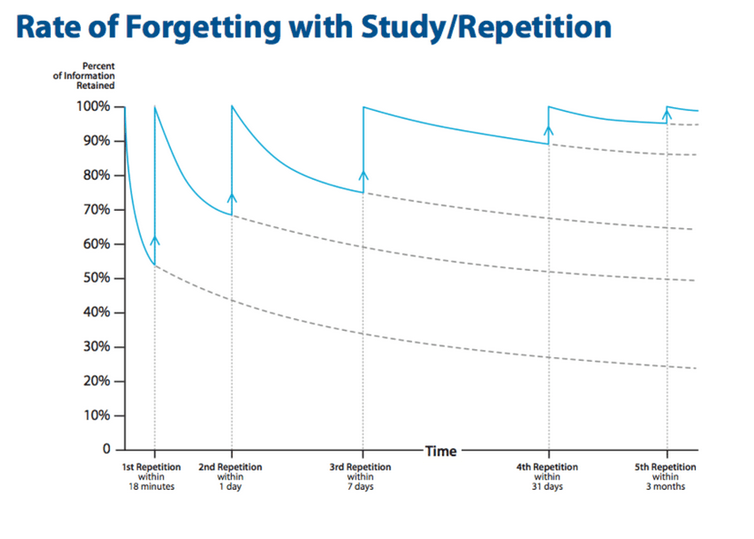Why Most Sales Training Is Complete & Utter Crap (+ one sad story I will share)
These sales statistics make for sobering reading:
- B2B buyers complete 57% of the buying decision before they are willing to talk to a sales rep. – CEB
- Only 29% of people want to talk to a salesperson to learn more about a product, while 62% will consult a search engine. (HubSpot, 2016)
- 46% of salespeople didn’t intend to go into the sales profession (this means over half your sales team are accidental, default salespeople – Sales Executive Council)\
- The average company spends $10,000 to $15,000 hiring an individual and only $2,000 a year in sales training (The Bridge Group, 2015)
- On average, only 29% of sales reps hit performance milestones in their first year (Aberdeen, 2013)
- “15 years ago, the average consumer typically used two touch-points when buying an item and only 7% regularly used more than four. Today consumers use an average of almost six touch points, with 50% regularly using more than four.” – Marketing Week
What these statistics teach you is that if you don’t learn to sell in a more sophisticated and strategic manner, you will become irrelevant.
Now, let me now share one story with you:
A significant national rural company reached out to us a few week ago. They’d been getting our weekly emails for a while (email us if you want to be added to our list btw :).
They wanted our help training their new cohorts (and probably their sales managers too if I was honest). I presented to them, qualified they liked what they saw and then sent them a proposal breaking down every module in detail.
All good so far.
They then told me to dumb it down.
They dismissed the value of science-based psychology and the proven laws it plays in sales success.
“It’s too complicated for our team. We need them to be able to start a conversation with farmers first.” they said…
The alarm bells started ringing. We knew it wasn’t going to be a good fit.
They didn’t understand committing to traditional sales training will do their team a great disservice. The very same sales team they were responsible for.
Maybe they didn’t get their recruitment strategy right in the first place?
Maybe they weren’t open-minded enough to consider new, more modern ways of selling?
Maybe basic communication skills would be a mandatory skill set you’d think right?
The problem is it will wreck havoc on their employment brand as they try to attract top talent for their ageing agent base.
Their industry (because they all unfortunately get tarred with the same brush) isn’t the most trusted profession already. They desperately want to be THE trusted advisor.
Psychology and understanding how to relate to human brain would have helped them on that mission.
And yet again, these same people will be put on the merry-go round of expensive, irrelevant billy-basic sales training happening in some boardroom in Auckland by someone who learnt sales from a franchise handbook, with no relevance to rural.
Rinse n’ repeat.
What a waste.
Professionally it breaks my heart to know that their new sales team members won’t get the sales training they really need or deserve.
Instead, they will be left largely to their own devices expecting to perform quickly, “ramp up fast” whilst feeling helpless, demotivated, unsupported and unheard from their sales managers who can’t make the time to train them.
I feel for them. I often see them. And I often hear the same sad stories when we go and pick up the pieces.
Turnover will take toll on them when they will have to start recruiting all over again draining more of their managers’ already-stretched time, unsettling any confidence farmers have in their new teams in the process.
Here’s the truth:
What served them before, won’t serve them now.
Times have changed.
Rural buyers are more aware so sellers need to beware even more so who are now armed to the teeth with most of the information they need from the internet.
They have become more sophisticated and strategic in the way they buy. Just re-read the statistics I started with above.
“Caveat Venditor” aka. seller beware as Dan Pink says in his brilliant book To Sell Is Human.
Talking about the weather, soil temperature or grass growth will only get you so far.
Most farmer buyers can smell this kind of fake BS from a mile off. They know you are here to sell them something so they will be protecting themselves.
They are not stupid and you insult their intelligence playing a predictable game.
You’ll need to ask better questions than that.
Opting for billy-basic corporate cookie-cutter sales training based on 1960s yester-year modules is a total waste of your money and your rural sales team’s time.
Smile training, rapport building and ABC are total bollocks and stuff all use in today’s sophisticated, hyper-connected world.
At best, they are givens. Expected hygiene factors giving you permission to play.
You need to dig much deeper into the soft sciences of psychology, neurology and sociology. The big Silicon Valley tech companies like Google, Amazon and Facebook have been all over this truth for years.
That’s why they – collectively – are the single-biggest recruiters of anthropologists and social scientists from the Ivy league colleges.
They’ve worked out how the human brain buys.
Anyone whose watched The Social Dilemma or The Great Hack on Netflix will know what I mean.
Voters got sold individualised fake news and the companies who mined the data and ‘sold’ it using proven psychographical principles got shut down – namely Cambridge Analytica (maybe they took the fall for Facebook?).
The thing is forcing, pushing or coercing your cynical sales team to attend more “sales training” is never going to work.
They will push back, respect you less as a manager and be an even more difficult proposition to bring back to “yet more training” next time, if you get that far.
You’ll have to spend your dollars twice. But you still won’t get any further.
If they’re one of your high performers, they might have even left because you spent too much time on under-performers and not enough time on them…
The single biggest problem with traditional sales training is they define success on on short-term memory structure.
Few if any programmes have an element of recall and retrieval to burn into brains the tools and techniques your team have been taught.

Sales managers can take some responsibility for this lack of reinforcement too.
Traditional sales training is so focussed on selling, it forgets no makes a sale until someone buys.
We have to be more obsessed about the buyer than we do about the seller in order to win.
We have to understand how the buyer brain buys at a psychological and neurological level.
Thanks to fMRI brain scanning machines we now know which parts of the brain are responsible for different decisions – anticipation, reward, threat, fear or surprise.
We use this knowledge because whilst people might lie, their brains don’t.
Effective sales training is not a one-hit wonder.
It is an on-going commitment to continually becoming better.
High performance athletes train day in, day out with deliberate, scheduled practice, specifically geared to skills they need to win on the world stage.
How else do you think they’ve got to the top of their game?
Every coach has their day. Some keep up with the play, some die away.
Choose your coach and sales training company carefully.
As General Eric Shineksi said:
If you don’t like change, you’ll like irrelevancy even less.
Get with the times. Choose the right sales training company for your rural sales team.
Ask them:
- How do they keep up their material up to date?
- Where does their training material come from?
- What do they read and research?
- How do they train their trainers?
- What courses and training programmes do they commit to themselves?
- When did they last spend a day on farm?
Make the right decision, not the wrong one. The latter will hurt and harm, rather than help your rural business.
Choosing billy-basic, cookie-cutter sales training programmes won’t give you and your team the competitive sales advantage it needs.
You know where to find me if you want our help. Book your free coaching call with me here.





